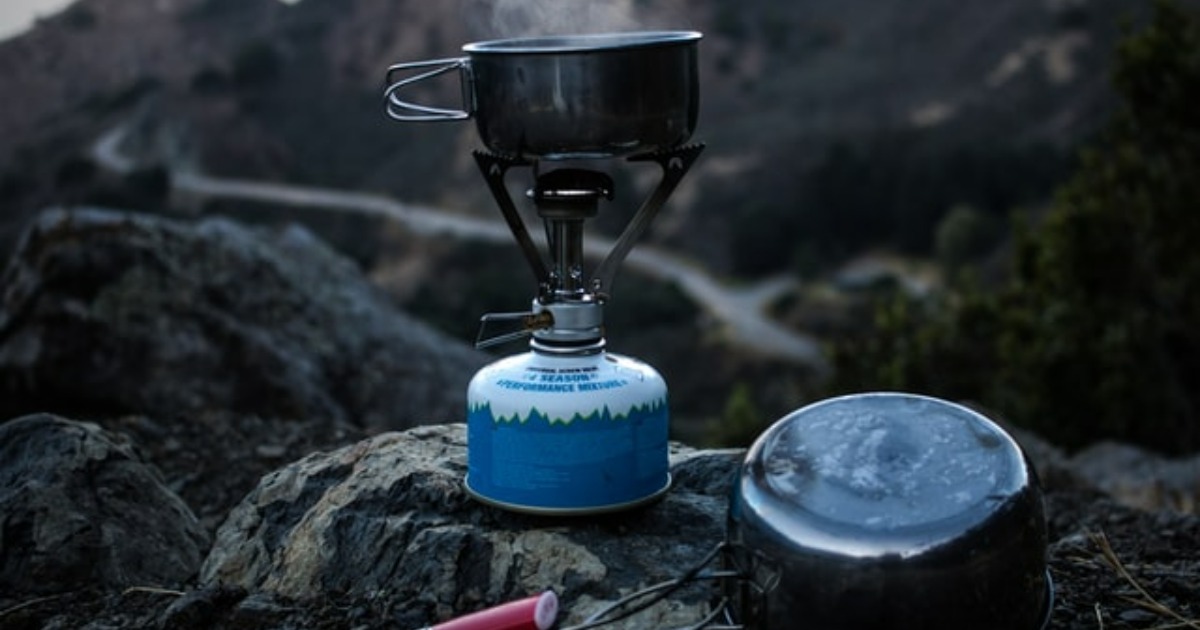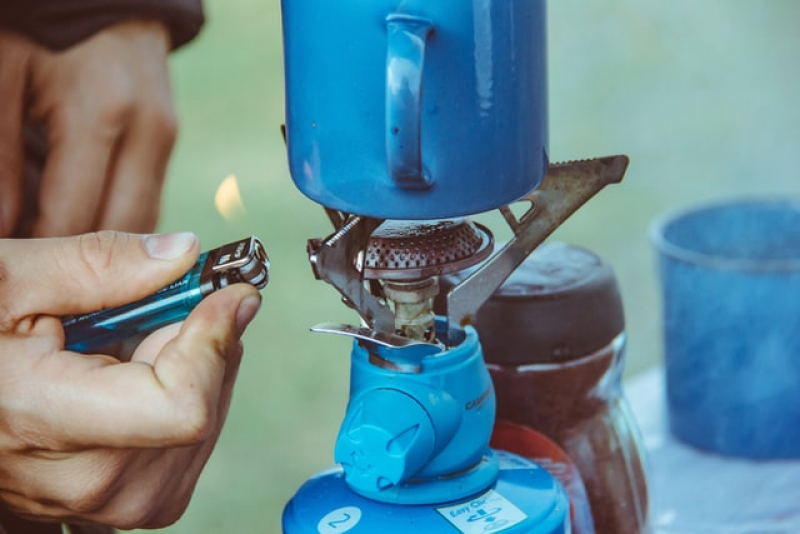Camping Stove & Backpacking Stove Buying Guide
- 25 Jul 2022 21:41
- 1566

Every year, thousands of families enjoy camping. But, everyone’s idea of a perfect camp setup is different. Some people prefer a more elaborate setup while others opt for the easiest and most simple choices, preferring easier setup and teardown.
There is one thing every camper has in common, however, everyone has to eat. Most campers cook at least some of their food, and not everyone likes to cook everything over the open fire of a campfire pit. For those people, choosing the right camping stove is very important.
Weight
Overall Size
Size can be important to backpackers as well as car campers. When packing up the family sedan for a week, or even a weekend, in the woods, space can be at a premium. There are many great stoves that fold into a compact size for traveling. Campers should be sure to check the overall dimensions and make sure that the stove they choose will fit within the space available for storage as well as cooking.
Some larger camping stoves have legs of their own. While this may take up a bit more room in the car on the way to camp, it can help save limited table space at camp. Stoves that are stand-alone will greatly increase the food preparation area.
Number of Campers
A big consideration for many is the number of people that will be served from the camp stove. Camping stoves come in one-burner, two-burner, and three-burner models. For the most part, one to two campers can easily use a one-burner stove. When the camping party grows to three or four people, a two-burner model may make more sense.
Keep in mind that even boiling water or making coffee can take up one burner for much longer than campers would like as the size of the camp grows. In some cases, a three-burner stove will be fine. In other cases, when more burners are needed, the camp may need more than one stove. This can also be the case for backpacking campers. It may be easier to carry 2 two-burner stoves than 1 three-burner camping stove. Keep in mind the dimensions and the weight of each of these items as well as how the load will be distributed. That will help determine which camping stove will be the best for the given situation.
Campers should also keep in mind the types of food they will be cooking during their outing. Some meals will require more burners than others. For example, boiling water to make oatmeal for the camp will take fewer burners than making eggs, bacon, and hash browns to start out the day. Campers should take a look at the planned menu as an indicator of the size of the camping stove as well.
These two factors – the number of campers and the type of meals to be prepared, will help to make the determination as to what is the best stove for that given trip. Also, keep in mind that not all burners on all stoves are the same size. Choosing the right camping stove will depend on the size of the pans you normally use to cook when camping.
Design
Stoves come in a variety of designs. Some sit flat on a table. Many of these have sides, which is great for windy conditions. Wind is the enemy of camp stoves that do not have a strong flame. It can make cooking near impossible when the wind is strong.
Some camping stoves have legs and are stand-alone models. These are great for bigger campsites. While they may not be practical for backpackers, car campers can enjoy more table space when they purchase a stand-alone camping stove. Some of these come with sides to shield the flame from the wind as well.
BTUs
BTUs, or British Thermal Units, are simply the measure of how much heat a stove will put out. When shopping for a camping stove, it's important to know the BTU rating. This will tell you how quickly a stove will boil water and be a good indication of its simmering ability.
A higher BTU rating is also important depending on the type of cooking you will be doing. If you are cooking large batches for groups of people, you will want a higher BTU rating on your camping stove. Some of the more powerful camping stoves have a BTU rating of over 20,000. These will be able to heat your large quantities quickly and easily.
Depending on the weather in which you will be camping, you may want to opt for a higher BTU rating as well. These stoves will perform better in inclement weather and will hold up to stronger wind speeds. While camping stoves with a higher BTU rating can be more expensive, they can definitely be worth the extra money for many campers.
Propane
Propane is very popular. It is readily available and easy to use. Further, for long camping trips, it can be bought in large white canisters that campers can use for an entire week-long adventure, for the most part, without worrying about running out of fuel. For those looking for portability, there are also smaller canisters that are easy to carry along on a backpacking trip.
Propane is readily available, which makes it a perfect choice. Most campers are familiar with the green Coleman propane canisters. The great thing about those canisters is they can be used not only for the camp stove but also in lanterns and other propane-powered camping items.
The larger propane tanks are refillable. This means they can be used again and again, year after year, for camping adventures whenever the time comes.

Electric
Electric camping stoves obviously have their drawbacks. If you are intending to camp in an isolated region, the chances of you having an electric power supply are slim to none. These stoves, however, can be a great choice to deliver even, good heat for campers who have a generator or who have access to power at their campsite. Electric skillets are a great idea for camp pancake breakfasts, too.
Electric stoves are easy to regulate, just as an electric stove in your home would be. For this reason, it is the choice of many people who are camping where there is access to power of some sort.

Wood
Wood-burning stoves or even grates that hang over a traditional campfire have one advantage. There is no need to carry fuel into the woods or campsite. As long as twigs, leaves, and branches (or firewood) are available, you only have to worry about the stove. Some people like the taste of food cooked over an open fire. To those people, it signifies camping and is filled with memories of great camping adventures.
There are definite disadvantages of wood-burning camp stoves, however. They do not provide even heat and they can be difficult to regulate. Some campers prefer not to work over wood flames that are not adjustable and can be more of a burn hazard than other types of camp stoves.
Campers choosing a wood-burning camp stove or set up should keep in mind that they may want to purchase special utensils with which to stir or flip the food. Unlike cooking in a regular pan or pot, flames may come up around the sides of the cooking pot and burn, scorch, or melt regular household serving utensils.

Cost
Camping stoves can vary greatly in cost. While cost should ideally be the last consideration, most people are limited by their own personal budgets. If you do a lot of camping, you would do well to spend a little more money on a good quality stove. Good quality camping stoves, when well maintained, will last for years. Spending a little more money in the beginning might keep you from having to buy a new camp stove every year or worse, more than once per season. You don’t want to choose a camping stove simply because it is cheap, but, you can surely wait until an after-season sale to get in on the best deals on a stove you’ve had your eye on for a while.
Review
When choosing a camping stove, think about the type of camping you do most often and the conditions in which you camp. If you usually camp with just one other person, a smaller 1-burner stove might be great. If you have a family of 7, you would be better off with a 2-burner stove at the very least and possibly a 3-burner. When you camp, if you have limited table space, a stand-alone camping stove might be perfect. It will allow you to have several burners on which to cook, but it won’t take up any valuable picnic table space that you might need. These stoves effectively make your outdoor kitchen bigger, and that is perfect for some people.
If you are a backpacker, size and weight are going to be more important to you. You will have to pack and pack out your stove and your fuel, so keep that in mind. While you want something lightweight, you also want something with enough heat to do the job that you need your camp stove to do.
Consider fuel types when choosing an oven, too. Choose a fuel type with which you are comfortable. Cooking over an open wood fire is not for everyone, and certain fuels are more readily available in certain areas.
Choosing a camping stove does not have to be complicated, although there are many sizes and models available. Simply taking into consideration the things discussed here should point you in the right direction when deciding on the best backpacking stove you want to get for your next hiking trip or the best camping stove for your family trip.
